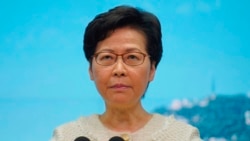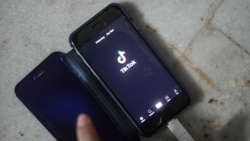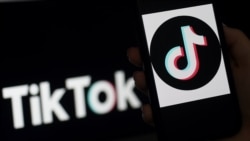Video sharing service TikTok says it is ending operations in Hong Kong after the enactment of a new national security law.
The decision by Chinese-owned TikTok comes after other major internet companies announced they had suspended processing any new requests for user data from Hong Kong’s government.
The companies include Facebook, Microsoft, Google, Twitter, Telegram and Zoom. They said the suspensions would remain while they study the new law, which took effect last week.
The law reduces Hong Kong’s self-governing autonomy and makes it easier to punish protesters. There is a punishment of life imprisonment for the crimes of secession, terrorism and aiding foreign forces.
Under the “one country, two systems” rule, Hong Kong was guaranteed the right to its own social, legal and political systems for 50 years following the end of British rule in 1997.
Some observers, however, say China’s ruling Communist Party has ignored that agreement by forcing the passage of unpopular laws. Critics see the new national security law as an attempt by China to reduce individual rights and freedoms in Hong Kong.
The new law gives police powers to control and remove online information if “reasonable grounds” are found to suspect that the data might violate national security rules.
American-based social media services like Facebook and Twitter are generally banned in China. But most have operated freely in Hong Kong. The companies are now considering how to operate under the new national security law.
TikTok said in a statement it decided to immediately halt its operations in Hong Kong “in light of recent events.”
The Chinese company ByteDance owns TikTok. The app is hugely popular in the United States and many other countries, especially among young people. TikTok only operates outside of mainland China. But ByteDance runs a similar video-sharing service for inside China.
Some U.S. officials have raised national security concerns about TikTok. Lawmakers have warned that TikTok could be misusing private data. They have also expressed concerns about laws requiring Chinese companies “to support and cooperate with intelligence work controlled by the Chinese Communist Party.”
U.S. Secretary of State Michael Pompeo said this week that officials were looking at banning some Chinese internet services, including TikTok. When asked whether he would suggest that Americans use TikTok, Pompeo told the broadcaster Fox News, “Only if you want your private information in the hands of the Chinese Communist Party.”
ByteDance has denied it is influenced by Chinese officials and says it does not provide any user data to the government.
Facebook and its messaging app WhatsApp said in a statement on Monday they had stopped processing government requests for user data in Hong Kong. The companies said they were currently examining the new national security law. They added that the process would include “human rights due diligence” and discussions “with international human rights experts.”
Google, Twitter, Microsoft’s LinkedIn and video conferencing service Zoom also made similar announcements.
Mike Ravdonikas is a spokesperson for messaging service Telegram. He told The Associated Press the company had also stopped processing data requests related to its Hong Kong users.
Activists in Hong Kong widely used Telegram to help organize pro-democracy protests in the territory.
Ravdonikas said the company understands “the importance of protecting the right to privacy of our Hong Kong users.” He added that the suspension would remain in place “until an international consensus is reached in relation to the ongoing political changes in the city.”
I’m Bryan Lynn.
Bryan Lynn wrote this story for Learning English, based on reports from The Associated Press, Reuters and Agence France-Presse. Ashley Thompson was the editor.
We want to hear from you. Write to us in the Comments section, and visit our Facebook page.
________________________________________________________________
Words in This Story
autonomy – n. the power or right of a country, group, etc., to govern itself
secession – n. the act of separating from a nation or state
grounds – n. the reason for doing or believing something
due diligence – n. research and analysis of a company or organization often done in preparation for a business transaction
consensus – n. an agreement by all parties involved












